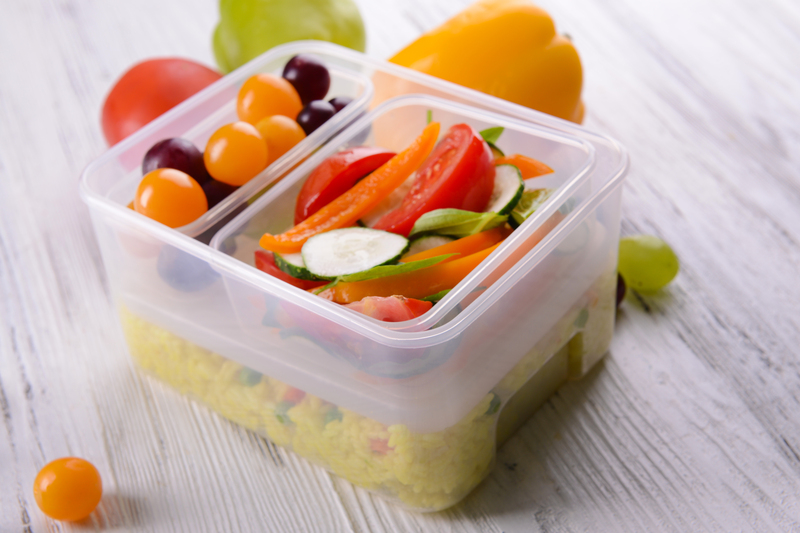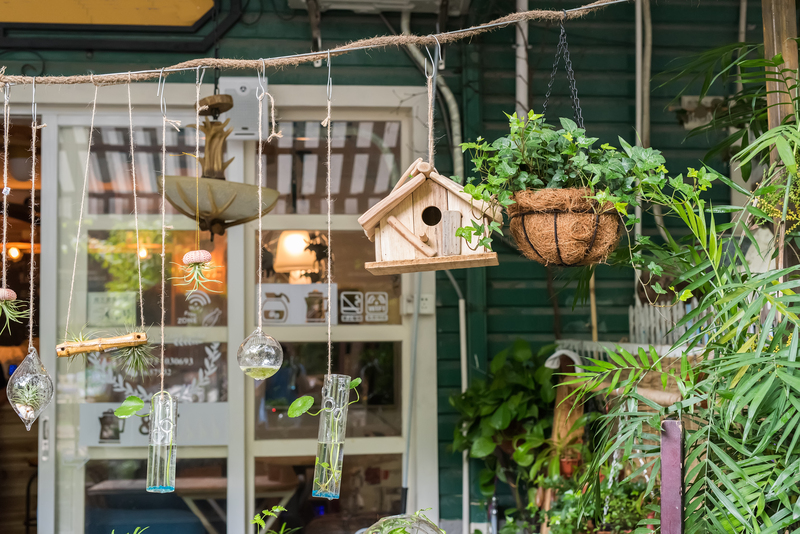How to Responsibly Recycle Your Old Cookware
Upgrading your kitchen can be a delight, but disposing of your old pots, pans, and bakeware is not so straightforward. Most cookware is durable and made from materials designed to withstand high temperatures, which makes it long-lasting in use, but also tricky to recycle cookware responsibly when the time comes. Fortunately, with the right information, you can ensure that your old kitchenware won't end up in a landfill. In this comprehensive guide, we'll detail the best eco-friendly methods to dispose of cookware and give your kitchen tools a second life.
Understanding Why Responsible Disposal of Cookware Matters
Cookware is often made of durable materials such as aluminum, stainless steel, cast iron, copper, nonstick coatings, and glass. When thrown into general waste, these materials can take decades or centuries to break down. Additionally, certain coatings or mixed materials can release toxins or persist in the environment. That's why it's important to recycle old cookware sustainably.
Main Environmental Concerns with Old Cookware
- Landfill overflow: Cookware in landfills contributes to waste build-up and pollution.
- Loss of valuable materials: Metals are finite resources; recycling helps recover these.
- Potential toxins: Nonstick coatings or synthetic materials can leach harmful substances.
- Resource waste: Manufacturing new cookware from virgin materials uses significant energy.

Step 1: Evaluate Your Cookware Condition
Before you pursue cookware recycling or disposal, assess whether your cookware is truly at the end of its life. Many pots and pans can be donated or repurposed if they're still usable. Consider:
- Is the cookware structurally sound? No cracks, warps, or excessive rust?
- Can the coating be restored? Some cast iron can be re-seasoned and nonstick pans can be re-coated professionally in rare cases.
If your answer is yes to the above, consider donation or repurposing before recycling.
Step 2: Donation - Giving Cookware a Second Life
One of the most sustainable options is to donate cookware that's still functional. Many individuals, families, and organizations can benefit from gently used pots and pans. Try these options for responsibly rehoming your unwanted kitchenware:
Where to Donate Old Pots and Pans
- Charity shops: Goodwill, Salvation Army, and other thrift stores typically accept cookware.
- Homeless shelters and soup kitchens: These organizations often need functional kitchen supplies.
- Community centers: Local recreation or community centers sometimes run kitchen supply drives.
- Online community groups: Give away cookware through Facebook Marketplace, Freecycle, or Buy Nothing networks.
Tip: Make sure the items are clean and in working order to maximize their usefulness to others.
Step 3: Repurposing - Creative Ways to Upcycle Cookware
If your cookware isn't suitable for donation, you can give it a new purpose around your home or garden. Here are some fun and practical ways to upcycle old pots and pans:
- Plant pots: Use old saucepans as rustic planters for flowers or herbs.
- Decor: Turn frying pans into quirky wall clocks or shelves.
- Organizers: Use baking trays as drawer organizers, or muffin tins for desktop storage.
- Pet bowls: Repurpose deep pans for feeding pets.
Get creative! Upcycling not only reduces waste but adds unique, homemade touches to your living space.
Step 4: How to Recycle Old Cookware - Preparing for the Recycling Process
If your cookware has truly reached the end of its usable life, recycling is the best option. However, kitchen tools often include mixes of materials like metals, plastics, and coatings that can complicate recycling.
Is Cookware Accepted in Curbside Recycling Programs?
Most municipal curbside recycling programs do not accept cookware due to size, weight, and material complexity. But don't worry: there are dedicated methods to responsibly recycle pots and pans!
Step 5: Find the Right Recycling Facility
To recycle old cookware effectively, you'll need to locate a nearby facility equipped to handle the specific material types. Here's how:
- Contact your local recycling center: Use resources like Earth911 to search for recycling drop-off points by material type (e.g., metal, glass).
- Metal scrapyards: Most pans and pots are made from steel, stainless steel, or aluminum. These metals are valuable and accepted at scrap metal dealers, even if they have minor coatings or handles.
- Civic amenity sites/household waste centers: Many localities run specialized recycling centers that collect items not suitable for curbside pickup.
- Retailer take-back programs: Some brands or stores (like Williams Sonoma or Sur La Table) offer recycling or trade-in programs for cookware.
How to Sort Materials and Separate Components
Cookware often combines metals, plastics, glass, silicone, and wooden handles. Most recycling facilities require you to remove any non-metal parts. For example:
- Remove handles: Unscrew or detach wooden or plastic handles from pans; recycle or dispose of them separately.
- Take off lids: Glass lids might be recycled with glass recyclables.
- Check for mixed materials: If you have ceramic-coated or nonstick cookware, ask your recycling center if they accept these compounds.
Tip: If a recycling facility requires the material to be "clean," wash off any food residue or stickers.
Step 6: Recycling Specific Types of Cookware
Different materials require specific handling. Here's how to recycle various kinds of kitchen cookware responsibly:
1. Stainless Steel and Aluminum Pots and Pans
- Highly recyclable. Remove non-metal parts, then take to a scrap metal yard or recycling facility.
- Potential value. Some yards pay for the scrap--ask about prices for stainless steel or aluminum.
2. Cast Iron Cookware
- Extremely durable and valuable for recycling.
- If uncoated, it's pure iron--bring to a metal scrapyard.
- Enamel-coated cast iron may still be accepted; check with your facility.
3. Nonstick (Teflon-coated) Pans
- Recycling is trickier due to the nonstick coating.
- Remove the handle and any non-metal components.
- Some metal recyclers accept nonstick pans if the coating doesn't affect the melting process, but always call and ask first.
4. Copper Cookware
- Copper is valuable--many recycling centers and scrap yards welcome it.
- If the copper is layered with other materials, inquire about recyclability.
5. Glass Bakeware
- Pyrex and similar: Most glass cookware can't be recycled with regular glass bottles due to different melting points.
- Check for special glass recycling facilities, or upcycle as organizers or storage containers.
6. Ceramic and Stoneware
- Generally not accepted in glass or curbside recycling programs.
- Some regions accept ceramics at construction and demolition waste sites.
- Alternatively, break up as mosaic materials or garden drainage.
Step 7: Special Cases - Nonstick and Coated Cookware
Nonstick, ceramic-coated, or enameled cookware present unique challenges. While the bulk metal may be recyclable, the coatings can interfere with the recycling process. Here's what to do:
- Check with recycling centers: Ask if they accept nonstick or coated cookware, and if there are special preparation requirements.
- Manufacturer programs: Some cookware manufacturers accept their own branded products back for recycling or safe disposal.
Step 8: Mail-In and Buyback Recycling Programs
Some eco-conscious companies offer mail-in recycling for old cookware or buyback incentives when you purchase new products. These services are ideal if you're unable to access local recycling facilities.
- TerraCycle: This company creates recycling programs for hard-to-recycle items, including cookware in certain collections.
- National chain retailers: Check with stores where you're buying new cookware--they may have trade-in or take-back deals.
Step 9: Responsible Disposal of Non-Recyclable Cookware
If you've exhausted all recycling, donation, and upcycling options, some cookware may have to be disposed of. To minimize environmental impact:
- Break down components: Separate wood, rubber, or plastic parts for landfill, and recycle metal where possible.
- Check for hazardous waste events: Some localities have events to collect nonstick or chemical-containing items for safer disposal.
Frequently Asked Questions About Recycling Old Cookware
Can I put old pots and pans in my recycling bin?
No. Most cookware is not accepted in curbside bins. Use scrap metal recyclers or specialized facilities.
What should I do with broken glass cookware?
If it's Pyrex or tempered glass and your area doesn't accept it, try repurposing at home or contact local disposal events for guidance.
Are the coatings on nonstick pans hazardous?
Older nonstick pans with PTFE and PFOA can be hazardous if overheated or damaged. These should be recycled if possible, and not donated.
How do I know if my old cookware is valuable for scrap?
Stainless steel, copper, and aluminum are the most valuable metals. Use a magnet--if a magnet sticks, it's possible steel. Aluminum and copper are non-magnetic and typically higher in value.

Tips for Buying More Sustainable Cookware in the Future
- Opt for uncoated metals: Stainless steel or cast iron with no coatings are easiest to recycle.
- Choose quality: Invest in durable cookware that lasts, reducing future waste.
- Check manufacturer policies: Some companies offer lifetime warranties and recycling programs.
- Avoid mixed- or plastic-heavy designs: Single-material items are easier to recycle at end of life.
Conclusion: Make a Difference By Recycling Cookware Responsibly
Recycling old cookware doesn't have to be complicated! By taking a few proactive steps--donating, upcycling, separating materials, and connecting with local recycling facilities--you can reduce landfill waste, recover precious metals, and support a healthier planet. Whenever you think, "Where can I recycle old pots and pans?" or "How do I dispose of cookware sustainably?" refer back to this detailed guide for practical, environmentally responsible solutions. Remember: Every pot and pan recycled is one less item polluting our earth!
Make the sustainable choice today and inspire others to do the same. Responsible cookware recycling is a small step that leads to a big impact!